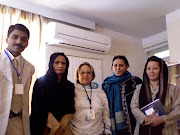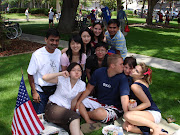MOST minds are now concentrated on the implications and consequences of the Afghanistan war. It is in its eighth year and no end seems to be in sight. American public opinion is now veering away from supporting the war, and a majority seems to prefer its coming to an end no matter how. Obama, whose popularity is at stake, is being assailed by the Republican right for being soft. The Pentagon is also pressing for extending the war's scope by augmenting American troops by 40,000 and keeping Nato there.
The American administration is in the process of devising a new strategy because the Af-Pak strategy of March last does not seem to have produced encouraging results. Indeed, the western generals in Afghanistan are signaling that a victory is no longer possible. The best thing to do is to augment the American force by another 40,000 and keep pressure on Nato to also stay the course. With better situation on the ground, it will be possible to end the war by finding an honourable exit strategy.
The new strategy that America may adopt might itself be a major factor in the war's continuance. Thus, it is too early to say anything about it. American public opinion is now a cognisable factor in addition to the Pentagon's recommendations. Britain has already ended its participation. Other Nato allies are also disheartened. This is the background against which, on the battlefields of Afghanistan, the awesome western military machine has not gained a decisive advantage in virtually eight years, and most thoughtful people are recommending an exit route. The Taliban are resurgent and they have fought the western military to a stalemate. (There is no question of Taliban defeating the western military machine as a whole.)
European and American forces have been unable to subdue Afghanistan as a whole even by imposing a government of their choice. The outside world is also keenly interested in the outcome of the Afghanistan war. China, for instance, has come out with a forthright statement: US should wind up its war in Afghanistan and get its forces out as quickly as possible. There is no talk of victory or any conditions. The Chinese saying something so clearly is a major development, and they may not be alone in demanding America's withdrawal.
This is also the time when Shanghai Cooperation Organisation (SCO) is going to meet. It reflects the interests of many Asian powers, including that of Russia. No one wants the war to continue. The SCO meeting is almost certain to echo the Chinese view. No one seems to have the stomach for a continuing war like this any more. It is possible to conclude that SCO will also reflect the Chinese demand on the West to stop fighting and get itself out.
Their security is threatened by the designs of the proponents of a new Islam that is more militant, more extreme, more violence prone and is, on the whole, oriented to re-creating conditions that obtained in Saudi Arabia 1500 years ago. Women's and human rights are anathema to them. But is the fearsome version based on Islam's own principles? They are taking some of the Islamic teachings to an unnecessary extreme. No one had in the past gone so far to recast Islam like this. China's Xinjiang is threatened by this distorted Islam. Other Muslims states in Central Asia are also threatened by it, as is Russia.
Many may ask that if the west withdraws from an inconclusive war at this stage, what will happen in Afghanistan. That strategic piece of land cannot be left to its own civil wars. Isn't there any international effort to ensure that some order stays after a new government comes into being? Can that happen in the absence of foreign "occupation troops?"
The Chinese appear to think that there should be an international conference in which representatives of all the Afghan factions should attend. The world would recommend a consensus kind of government, which would include the Taliban, warlords, pro-Pakistanis and anti-Pakistanis and a smattering of Afghan intelligentsia. They have to agree on basic terms. The difficulty arises because of the claims of pro-Pakistan and anti-Pakistan Taliban.
They talk in terms of Islam demanding, that its Shariah should be enforced and a typical Islamic State should be formed. The typical Islamic State today would be an approximate copy of the Taliban rule in Afghanistan from 1996 to 2001. This appeals to many Afghans, particularly Pushtoons. The Taliban also happen to subscribe to Pushtoonwali, which gives them legitimacy as Afghan nationalists who are fighting against an occupation army, and it becomes a national liberation struggle insofar as the Pushtoons are concerned.
But there are variants. Militant Islam is the only Islam they claim. Islam does not mean anything else, they hold. Those who differ fromthe Taliban are in grave error. It is this Militant Islam which is a threat to the stability and security of all the Central Asian states and China's Xinjiang province. Russia is threatened because of its numerous Muslim minorities, particularly in Chechnya. But all Muslim states are prone to be attracted to the appeal of the Taliban.
It is a piquant situation, no doubt. The UN has also called for an international conference on Afghanistan sometime this year. But the UN conference requires agreement among the Big Five, and there is some doubt that the Taliban and others in the Afghan imbroglio will listen to the demands for tolerant plurality that has obtained even among the Pushtoons. More specifically listen to Russia, China and other Central Asian states.
Afghanistan is the gateway to Central Asia. All Central Asian states are liable to be threatened by the Taliban Islam. There are other important neighbours of Afghanistan: Pakistan and Iran. India is nearby and looms fairly large in Afghanistan, especially after its vastly improved relations with the Americans. The Taliban need to listen to the outside world. But will they? This is not certain.
Pakistan has particular relevance to Afghanistan. First, because there is an overlap of Pushtoon population between Afghanistan and Pakistan. The Pushtoons in Pakistan are concentrated along the uncertain Durand Line that never was enforced in the sense the international frontiers are. The Pushtoons were allowed throughout the last 250 years or so to go across and come back without any documentation. This is much too porous a frontier.
There also used to be a dispute between Afghanistan and Pakistan because Pakistan insisted that the Durand Line be recognised as the final border and the Afghans said that Pushtoon areas in Pakistan were basically part of Afghanistan and Pakistan should have nothing to do in the areas west of river Indus. Pakistanis, including many Pushtoons, laugh at the idea.
Pakistan has had influence in Afghanistan throughout the last 30 years or more. Pakistan played a part in all the wars that have taken place in Afghanistan in recent years: one known as jihad in the 1980s and the other were the many sided civil wars in the 1990s and now in the open-ended War against Terror by America. The question is, how are the competing interests of various warlords, Afghan Taliban, Pakistani Taliban and Pakistan and India going to be accommodated for a solution? The solution has to satisfy the minimal interests of the west but is nowhere on the horizon.
Without some kind of an end result in sight, the fighting forces cannot be separated. All three groups in Afghanistan -- warlords (district commanders), Taliban and so-called central authority -- have to agree to something. Afghanistan has to be reinvented. It will take much ingenuity and international networking by various governments before any formula can be evolved.
M.B. Naqvi is a leading Pakistani columnist.
Thursday, October 15, 2009
Subscribe to:
Post Comments (Atom)












No comments:
Post a Comment